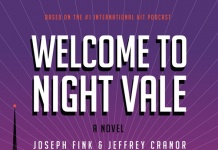
The DOJ filed suit against five publishers (Penguin, Macmillan, Hachette, HarperCollins, Simon & Schuster) on April 11, 2012. The DOJ then immediately filed a notice of settlement and a request for approval of the settlement. A judge assigned to this case will then either approve the settlement and order the parties back to the negotiating table. Any interested party has the right to write a statement to the court within 60 days to encourage or discourage acceptance of the proposed settlement.
Two things are at issue here:
1) The restriction on retailers ability to discount books and
2) The Most Favored Nation clause (MFN for short). The term MFN essentially means that the retailer gets the best deal offered to other retailers. If HarperCollins was going to price a book at Apple for $1.99, the MFN clause that Amazon had in its contract with HarperCollins would kick in and Amazon would automatically lower the price to match the $1.99. The Final Judgment defines banned MFNs to include
- clauses that require the publishers to match retail prices from ebook retailer to ebook retailer (If BN prices the book at $5.99, Amazon lowers the price to $5.99)
- clauses that require publishers to match the wholesale price that the ebook retailer is getting (i.e., if BN gets 14.99 wholesale price, Amazon gets 14.99 automatically)
- clauses that required publishers to match revenue share or commissions. (I.e., if BN says they want 30% of books sold on commission, Amazon also gets 30%)
Assuming the settlement is approved, the timeline is as follows:
- The judge approves the settlement.
- Within 7 days, the Settling Defendants (Hachette, HarperCollins, and Simon & Schuster) will need to sever their contracts with Apple.
- Within 30 days, the Settling Defendants will need to bring their pricing arrangements in line with the terms dictated in the Settlement Agreement.
- Within 30 days, contracts that restrict an ebook retailers ability to set the price of an ebook or a most favored nation clause must be broken. Amazon would be a retailer with whom publishers have an MFN clause.
- Publishers must designate an Antitrust Compliance Officer to train the employees of the publishers in how to abide by the rules set forth in the agreement; to conduct an audit; provide quarterly reports of compliance to the DOJ, and to maintain a log of communications between “officers and directors” and others if the communication involves selling of ebooks.
Other lawsuits include
- 16 States’ Attorney Generals filing suit against Penguin, Macmillan, Simon & Schuster and Apple. Hachette and HarperCollins settled, agreeing to a payment of penalty purported to be $51 million and some unspecified injunction (an order to stop doing things)
- Civil class action litigation that is still ongoing. My guess is that Hachette, HC, and S&S have little stomach for protracted litigation but obtaining a partial settlement in the class action with approval from the court (as class action settlements must be court approved) may be difficult right now.
- EU investigation (not a lawsuit but important). According to this article, all publishers but Penguin are reportedly talking settlement with the EU.
What happens next?
- 3 of the big 6 publishers will make new agreements with Amazon and the other retailers.
- These new agreements can have staggered termination dates. This means Hachette’s annual contract with Amazon would end on a different date than HarperCollins contract with Amazon. This is to ensure that there is no concerted and collusive action.
- The publishers can consider joint ventures (aka Bookish) but only upon approval of such a plan by the DOJ.
- The publishers will need to provide DOJ a copy of their agreements with retailers for the next five years on a quarterly basis.
- For two years, the publishers cannot restrict the right of retailers to discount books. After two years, publishers can ask for and receive agreement to sell ebooks through a retailer under the current scheme – where the publishers restrict retailers from discounting.
- For five years, the publishers cannot include MFN clauses in their agreements.
- The publishers are allowed to negotiate a soft floor under which books cannot be discounted but only if the retailer agrees to this. The clause in the settlement agreement allows a retailer, like Amazon, to discount books but limits the discount in one year for one publisher to not exceed the retailers aggregate commission. Assume Amazon signs an agreement with Hachette and Amazon agrees to accept a 30% commission on every book sold. For one year, the total amount of discounts cannot exceed the total commission Amazon received for that year. Some of the books could be half off, buy one get one free, or not be discounted at all. But the total discount cannot exceed total commission. Assume Amazon sold 100 books for Hachette that were retail priced at $9.99. The total commission for Amazon would be $299.70. Thus, the overall discounts Amazon gave to us readers could not exceed $299.70.
- Retailers like All Romance, Fictionwise, Kobo will be able to provide coupons and include a greater number of books into their rewards programs for at least a period of two years.
Predictions
My prediction is that Amazon will begin to discount the books that it can once the settlement agreement is approved which will NOT occur until the 60 day comment period has passed. I also feel that given the marked decline of mass market that the format will be phased out and be replaced with primarily trade and hardcovers thus increasing the overall suggested retail price for books. This would serve to elevate digital book prices even if Amazon would choose to discount aggressively.
Thus while book prices might fall in the short term, beginning in late summer, within two years, many print book prices may increase, thus increasing the retail price. Mass markets may go up to 8.99 per book and trades up to 15-17.99 with hardcovers increasing as well. MMPB buyers are very price sensitive but with large numbers of mmpb readers moving toward digital, publishers might see the increased price as a worthwhile risk.
In other words, you may want to stock up in the late summer and early fall (and thus you might want to save for that time). Christmas 2012 might be a banner year in ebook sales again due to discounted pricing.
I also think that the publishers have sustained a big public relations blow. People who never read an ebook or haven’t followed this issue closely now are exposed to this idea that publishers stand accused of engaging in price fixing. John Sargeant’s public post that is addressed to authors, agents, and illustrators, speaks so clearly to the lack of good PR within publishers and how they aren’t well suited at this point of dealing directly with consumers.
I would also expect traditional publishing to move forward toward a digital first model. Within the 50 Shades of Grey phenomenon is the success of the digital first model. A book might need to prove itself in digital sales in order to be moved to print. This would dovetail with retailers like Barnes & Noble increasingly devoting retail floor space to non book items; the reduction of book presence at retail outlets like Wal-Mart, grocery stores, and drugstores.
Highlights of the lawsuit going forward
Given that the suits against Penguin, Apple, and Macmillan are the ones’ going forward, I’ve excerpted the allegations of the DOJ as it relates to those publishers. The DOJ will attempt to prove that the two publishers and Apple worked in concert with one another to increase book prices and reduce the competition to Apple from Amazon. The DOJ has said the parties engaged in a per se antitrust violation and thus do not need to define the market but to the extent that they are required to define the market, it is “trade ebook.” I think that they shouldn’t have limited it to this and that it is unduly narrow.
The italicized parts in blue are taken directly from the complaint or impact statement.
- In 2008, 2009, and 2010, the major officers of the publishers held in person meetings, sometimes quarterly, but also over the telephone to talk about “competitive” matters including combating Amazon.
- Apple CEO Steve Jobs wrote to an executive of one Publisher Defendant’s corporate parent that the publisher had only two choices apart from signing the Apple Agency Agreement: (i) accept the status quo (“Keep going with Amazon at $9.99”); or (ii) continue with the losing windowing policy (“Hold back your books from Amazon”). According to Jobs, the Apple deal offered the Publisher Defendants a superior alternative path to the higher retail e-book prices they sought: “Throw in with Apple and see if we can all make a go of this to create a real mainstream e-books market at $12.99 and $14.99.”
- After each round of negotiations with Apple over the terms of their agency agreements, Publisher Defendants’ CEOs immediately contacted each other to discuss strategy and verify where each stood with Apple. They also used Apple to verify their position vis-a?-vis other Publisher Defendants. Penguin, for example, sought Apple’s assurance that it was “1 of 4 before signing”—an assurance that Apple provided. Two days later, Penguin and two other Publisher Defendants signed Apple Agency Agreements.
- The negotiations between Apple and Publisher Defendants culminated in all five Publisher Defendants signing the Apple Agency Agreements within a three-day span, with the last Publisher Defendant signing on January 26, 2010. The next day, Apple announced the iPad at a launch event.
- Initially, Amazon attempted to resist Macmillan’s efforts to force it to accept either the agency model or windowing of its e-books by refusing to sell Macmillan’s titles. Other Publisher Defendants, continuing their practice of communicating with each other, offered Macmillan’s CEO messages of encouragement and assurances of solidarity. For example, one Settling Defendant’s CEO e-mailed Macmillan’s CEO to tell him, “I can ensure you that you are not going to find your company alone in the battle.”
- Mr. Shanks, the CEO of Penguin, twice chastised Random House for continuing to sell ebooks under the wholesale model and criticized RH for “not helping the group.” “Mr Shanks also encouraged a large print and e-book retailer to punish the other publisher for not joining Defendants’ conspiracy. In March 2010, Mr. Shanks sent an email message to an executive of the retailer complaining that the publisher “has chosen to stay on their current model and allow retailers to sell at whatever price they wish.” Mr. Shanks argued that “[s]ince Penguin is looking out for [your] welfare at what appears to be great costs to us, I would hope that [you] would be equally brutal to Publishers who have thrown in with your competition with obvious disdain for your welfare…I hope you make [the publisher] hurt like Amazon is doing to [the Publisher Defendants]. Likely this is referring to Barnes and Noble
(Via Dear Author: Romance Novel Reviews, Industry News, and Commentary.)
































Well, we all know who the first to file an objection would be, right?
The president of the Publishers’ Guild, Scott Turow.
The over/under is about 3 days.
I do find interesting that Penguin tried to use B&N to “punish” RH. Even more interesting is whether B&N joined the conspiracy and complied. They *have* been named in some of the class action lawsuits so if they did help out…
Looks like this is going to get a lot messier fast.
It will be interesting to see how much of what the Gov claims happened, actually happened. Also whether Apple manages to prevail considering their differing position as regards price setting. It seems to me that it is good that one party at least goes to court because that may force the courts to issue a definitive judgement on what is and what is not illegal.
Wait, this settlement is going to ban “MFN clauses”?
Isn’t that a strike against Amazon? Unless I totally misunderstand, it means that a publisher can set the wholesale price that Amazon pays higher than the wholesale price anyone else pays–and Amazon is not permitted to write terms into a contract that disallows this!
Is it just me, or does the commission system for limiting discounts makes no sense?
Wouldn’t this require the retailers to somehow know in advance exactly how many copies of each book they will sell?
It sounds like a retailer could reduce the margin across the board but still sell profitably, or they can do a loyalty program(limited to one publisher?), but they can’t actually sell ebooks at a loss unless they are psychic.
@DensityDuck; Yes, MFN clauses are now forbidden… To the BPHs.
But BPHs are a minority of the business. And Amazon has plenty of ways to retaliate if one of the BPHs get uppity. (Or so the BPH apologists claim.)
MFNs came in with the conspiracy; Amazon didn’t need one until Apple brought them in. Doesn’t matter, really; contracts still need to be negotiated individually and pass DOJ inspection.
Companies that spend their time looking to hurt their own distribution channels tend to be run over by companies that spend their time trying to hurt *them*.
@Peter
Yes, as I understand the system it basically means stores can sell the ebooks at a break-even price, but not at a loss (because that would mean selling other books for more than the agency price to compensate for the loss).
This will make competition between stores a bit more fair.
So, after two years the Agency 6 can just create new price-fixing contracts, and just stagger their introduction? I may be misunderstanding the settlement, but that’s the way it sounds to me.
Also, on ebook-vs-paperback prices, Hachette and HarperCollins (at least) are charging Australians over $20 for new ebooks, while new paperbacks are $7.99 (both prices from Amazon this week).